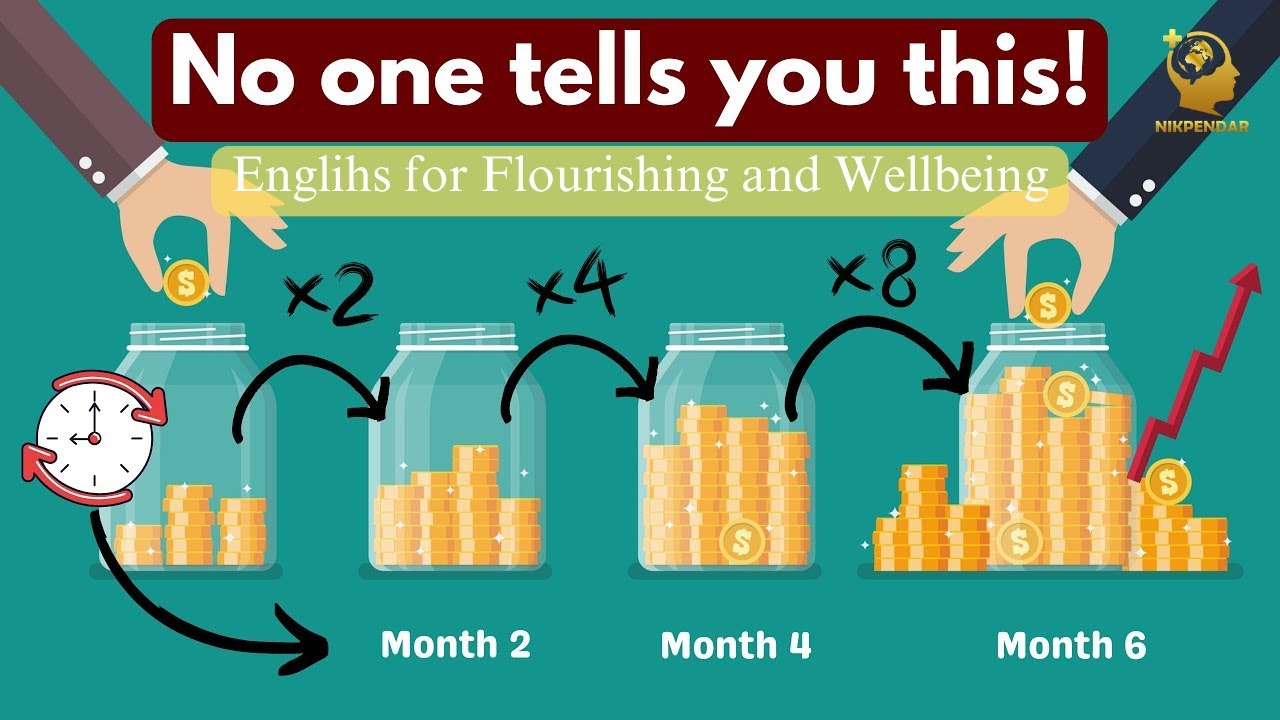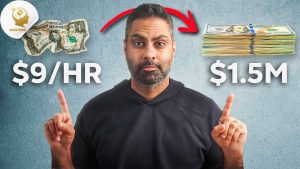
Beginner
Task 1: My Spending
The speaker talks about tracking spending.
- What is spending?
- Do you know where your money goes?
- What is one thing you spend money on that you like?
Task 2: Saving Money
The video gives ideas for saving money.
- What is one easy way to save money from the video? (e.g., eat at home, lower bills).
- Why is saving money good?
- What is one thing you would like to save money for?
Intermediate
Task 1: Getting Control of Spending Habits
The speaker emphasizes the importance of tracking spending and making a budget.
- Why is it important to know where your money goes?
- What are some benefits of making a budget, even if it seems like a lot of work?
- Have you ever tried to track your spending or make a budget? What was your experience?
Task 2: Smart Purchases
The video discusses saving for big purchases and giving yourself a limit on unbudgeted spending.
- Explain the “1% rule” for unbudgeted spending. How does it help?
- Why is it better to save cash for a big purchase instead of using a credit card loan?
- Describe a time you wanted to buy something big. Did you save for it, or did you buy it impulsively?
Advanced
Task 1: Financial Literacy as a “Superpower”
The speaker states that financial literacy (reading books about finance) is “kinda like a superpower” that puts you in control of your financial destiny.
- Elaborate on why financial literacy is so powerful. What specific skills or advantages does it provide?
- Do you agree with the speaker’s strong emphasis on reading books about finance, or are there other equally effective ways to gain financial knowledge today? Justify your opinion.
Task 2: Addressing Common Financial Pitfalls
The transcript addresses common financial challenges like debt and over-reliance on credit cards.
- Discuss the dangers of carrying high-interest credit card debt. What strategies does the speaker suggest for paying off debt and avoiding new debt?
- Explain the concept of a “spending fast.” How can this seemingly extreme measure lead to long-term financial wellness and a change in perspective on money?
Beginner
Task 1: Getting Out of Debt – True or False?
Listen to the beginning of the video where the speaker talks about being in debt. Decide if the following statements are True or False.
- The speaker was never stressed about money.
- The speaker found a way to get out of debt.
- The video will share tips to get ahead in finances.
- You should not subscribe or like the video.
Task 2: Top Tips for Money
Listen for the first two tips the speaker gives. What are they?
- Tip 1:
- Tip 2:
Intermediate
Task 1: Understanding “Keeping Track of Spending”
Listen to the section about “keeping track of your spending.”
- According to the speaker, why do most people not do this, even though they’ve heard it before?
- What is the “basic goal” of expense tracking?
- What does the speaker suggest you do first to get control of your spending habits? Give an example.
Task 2: The 1% Rule
Listen to the explanation of the “1% rule for spending money.”
- What is the purpose of this rule?
- If someone makes $60,000 a year, how much money is the “1% limit”?
- What is the main benefit of the 24-hour cooling-off period?
Advanced
Task 1: The Philosophy Behind Financial Habits
The speaker references Peter Drucker’s quote, “If you can’t measure it, you can’t manage it.” Analyze how this quote applies to the first two tips (keeping track of spending and making a budget). Additionally, discuss the speaker’s perspective on why budgeting is often avoided but is “worth it.”
Discussion Points:
-
- How does tracking spending relate to “measuring” your finances?
- What are the perceived difficulties and actual benefits of budgeting according to the speaker?
- How does the speaker encourage a change in perspective towards budgeting?
Task 2: Strategic Debt Management and Lifestyle Changes
The speaker offers several strategies for debt repayment and avoiding future debt, including managing discretionary spending, saving for big purchases, and reducing reliance on credit cards. Discuss how these different strategies intertwine to create a comprehensive approach to financial wellness. Furthermore, evaluate the “spending fast” concept, considering its potential psychological and financial benefits in changing long-term spending behaviors.
Discussion Points:
-
- Compare and contrast the immediate vs. long-term impacts of using credit cards vs. saving for purchases.
- How does “discretionary spending” relate to impulsive purchases and the “1% rule”?
- Analyze the “spending fast” as a “detox” for financial habits, including its challenges and potential outcomes.
Beginner
Task 1: Paying Bills
The speaker talks about a time when bills piled up. Have you ever felt stressed about money or bills? What was one simple idea from the text that you think can help people start to pay their bills?
- Read the first two paragraphs and point 1: “Keep track of your spending.”
- Write: 3-4 sentences.
- Keywords to use: bills, money, stressed, keep track, spending.
Task 2: Eating at Home
The speaker suggests eating at home to save money. What are two things you can do to eat more at home and save money, according to the text?
- Read point 7: “Eat at home.”
- Write: 3-4 sentences.
- Keywords to use: eat at home, save money, takeout, packed lunches.
Intermediate
Task 1: The Importance of Budgeting
The speaker emphasizes the importance of making a budget, even though many people find it difficult. According to the text, why is making a budget worth the effort? What should you do to make sure your budget is useful, and how can technology help?
- Read point 2: “Make a budget.”
- Write: 100-150 words.
- Concepts to include: worth it, benefits, updating, reviewing, digital apps/software.
Task 2: Smart Spending Habits
The text introduces the “1% rule for spending money” and the idea of “spending fasts.” Explain both of these concepts. How do they help people avoid impulsive purchases and gain better control over their finances?
- Read point 3: “Give yourself a limit on unbudgeted spending” and point 10: “Continue to spend quickly.”
- Write: 120-180 words.
- Concepts to include: 1% rule, cooling-off period, spending fast, discretionary purchases, financial wellness, behavior change.
Advanced
Task 1: Financial Literacy as a “Superpower”
The speaker describes financial literacy as a “superpower” that helps people control their “financial destiny.” Analyze this metaphor. Based on the text, what specific abilities does financial literacy provide, and how do these abilities lead to financial stability and meeting financial objectives? Discuss the speaker’s implied criticism of people who “never bother to read.”
- Read point 5: “Read books about finance.”
- Write: 200-250 words.
- Key Concepts to address: financial literacy, superpower metaphor, budgeting, saving, borrowing, investing, financial objectives, financial stability, importance of reading, criticism of ignorance.
Task 2: Overcoming Debt and Credit Card Reliance
The transcript identifies carrying high-interest debt, especially credit card debt, as a “costliest mistake.” Discuss the strategies proposed in the text for paying off debt, including both tracking and proactive repayment methods. Furthermore, explain why the speaker strongly advises against over-reliance on credit cards, detailing the negative consequences and suggesting alternative payment methods.
-
-
- Read point 8: “Pay off your debt” and point 9: “Stop using credit cards.”
- Write: 250-300 words.
- Key Concepts to address: high-interest debt, credit cards, minimum payments, debt repayment strategies (e.g., lower interest rates, merging loans, balance transfers), self-control, financial constraints, cash/debit cards, short-term savings, financial stress.
-
Beginner
Task 1: My Spending Habits
The speaker talks about keeping track of your money. Do you know where your money goes? What is one thing you spend money on that you could try to spend less on? Write 3-4 sentences.
- Keywords to use: spend, money, track, save
Task 2: Eating at Home
One tip is to “eat at home.” Why does the speaker say this is a good idea for saving money? What is one simple way you could start eating at home more often? Write 3-4 sentences.
- Keywords to use: eat at home, save money, cook, lunch
Intermediate
Task 1: The Importance of Budgeting
The speaker strongly recommends making a budget. Why does he say many people don’t have one? Explain the benefits of having a budget and why it’s important to keep it updated and reviewed, not just put away.
- Word Count: 100-150 words
- Concepts to include: budget, benefits, updating, reviewing, digital apps.
Task 2: The “1% Rule” for Smart Spending
Explain the “1% rule” mentioned in the transcript. How does this rule help people avoid impulsive purchases? Provide an example of how someone would use this rule with a specific purchase.
- Word Count: 120-180 words
- Concepts to include: 1% rule, unbudgeted spending, impulsive purchases, cooling-off period, discretionary spending, example.
Advanced
Task 1: Financial Literacy as a “Superpower”
The speaker describes financial literacy as a “superpower” that puts you “in control of your financial destiny.” Discuss the various aspects of financial literacy mentioned (budgeting, saving, borrowing, investing) and how mastering these skills can lead to financial stability and goal achievement. Analyze why the speaker emphasizes reading books on finance despite many people avoiding them.
- Word Count: 200-250 words
- Key Concepts to address: financial literacy, superpower, control, destiny, budgeting, saving, borrowing, investing, importance of reading, financial stability.
Task 2: Strategic Debt Management and Credit Card Usage
The transcript strongly advises paying off debt, especially high-interest credit card debt, and re-evaluating credit card usage. Analyze the speaker’s arguments against relying on credit cards and the dangers of high-interest debt. Compare the suggested strategies for debt repayment (e.g., listing debts, lowering interest rates, developing repayment plans) with the advice to stop using credit cards. Discuss the speaker’s perspective on when credit cards are useful versus when they become a “crutch.”
- Word Count: 250-300 words
- Key Concepts to address: debt repayment, high-interest credit cards, disadvantages of credit card reliance, debt repayment strategies, balance transfer, spending fast, credit cards as a “crutch” vs. “tool,” financial maturity.





